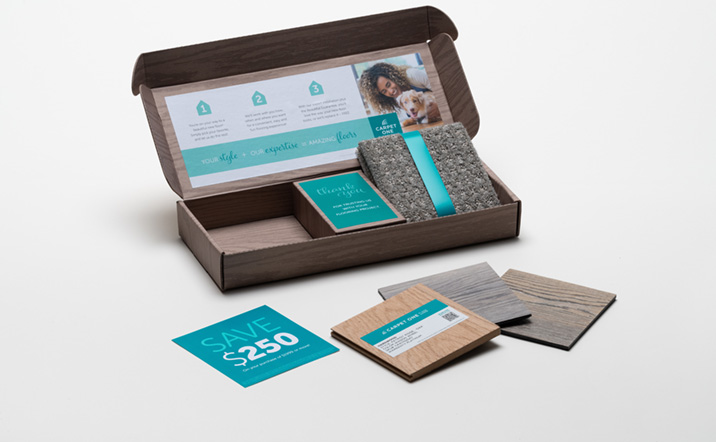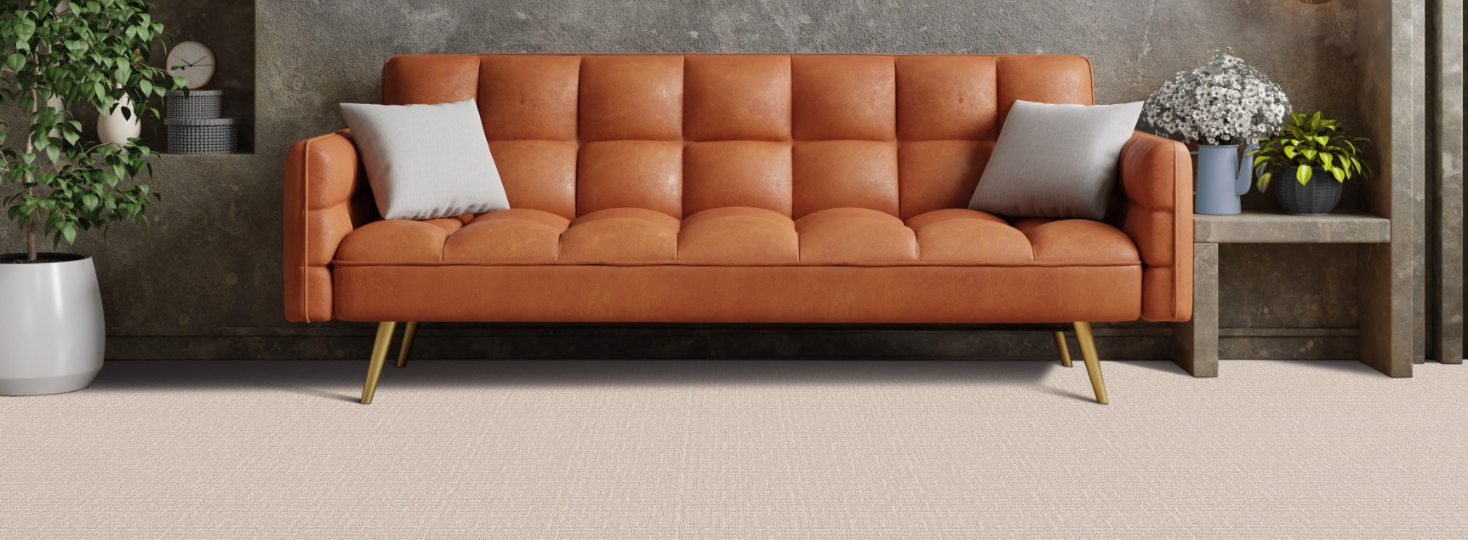
Olefin Carpet
Olefin is often used in machine-made area rugs and as backing for other carpets. It's best for basements, porches, and outdoor areas.

Olefin is often used in machine-made area rugs and as backing for other carpets. It's best for basements, porches, and outdoor areas.

Our designers share tips and top trends for every season. Discover your next home project with the help of our blog.

Get up to six samples delivered to your door.

Since its 1960s debut, olefin carpet has been a popular flooring choice for certain environments, especially low-cost commercial applications. Commonly known as polypropylene, olefin is most often used in machine-made area rugs and as the backing material for all types of carpet. When it comes to your home, olefin carpet is best kept to basements, porches, and outdoor areas.
The style, design, and color of olefin carpet varies based on the product you choose. Although olefin carpet is less common in the residential market these days, most homeowners who opt for polypropylene carpet choose a low-profile loop pile, like berber. This has a density and construction that maximizes the fiber's durability.
When it comes to color selections, you have a limited number of choices compared to nylon or polyester. However, what options you do have won't fade in direct sunlight, as olefin is the most colorfast fiber available.
Olefin carpet doesn't provide the same level of durability as other synthetic carpet options. This synthetic material does a great job of repelling stains and moisture, so you might consider it for the screened-in porch where your kids are constantly tracking mud. Keep in mind that heavy foot traffic and dragging objects across it can wear olefin fibers quickly, sometimes causing them to fuse or mat together.
Olefin absorbs oil easily and that oil can attract dirt particles, resulting in a yellowing effect. Avoid this by regularly vacuuming to remove dirt and debris. If you spill grease or oil, follow your manufacturer's instructions to properly clean it up.
If you opt for olefin carpets on a patio or in your basement, how long can you expect them to last? It will depend on several factors specific to your home as well as the choices you make. To get the maximum life from olefin carpet, you'll want:
As you shop for carpeting, look into the warranty available. Carpet One Floor & Home offers peace-of-mind warranty protection to ensure you get the most from your new purchase.
You’ll find that installing olefin carpet is much like installing any other carpet—if anything, the process may be more straightforward since padding isn’t always necessary, especially if you’re considering installation near indoor/outdoor areas.
Still, hiring a professional installation team can save you time in the long run, as they come equipped with the tools and knowledge necessary to ensure a smooth installation. They'll leave you with a beautiful floor that's installed according to warranty requirements.
If you're curious about olefin carpet, the pros and cons are worth considering. Some advantages include:
There are a few olefin carpet disadvantages to look out for:
Olefin carpet is a good choice for your more moisture-prone areas like the basement, as these spaces will benefit from its hydroponic fibers that wick water away. Due to olefin’s colorfastness, which can also help it withstand UV lighting, it's often used in the automobile industry. It's easy on your wallet, repels most stains, and doesn't generate static. But, if you’re deciding between olefin and other synthetic carpet options, keep in mind that olefin doesn't wear as well or last as long as other synthetic options.
Olefin carpet problems center around durability, resilience, and stain resistance. Olefin synthetic fibers don't bounce back from compression like nylon. Instead, they can mat and wear easily. Though olefin resists water-based spills, it will absorb oil and grease. You can avoid these issues by installing olefin in your less high-traffic rooms such as the spare guest room or the basement closet, and cleaning up any oil or grease spills as soon as you notice them.
The best carpet solution for your home will depend on your specific needs. Nylon works better for busy areas where family and pets are constantly passing through, as the fibers have a resilient quality that bounces back after compression. Olefin carpet has a natural stain resistance and the ability to repel water, which makes it more helpful in moisture-prone spaces with less traffic, such as basements or screened-in porches. Most olefin carpets today are found in commercial spaces.
Olefin carpet is a synthetic material also known as polypropylene that's derived from plastic. It's mostly used in commercial spaces or in machine-made area rugs.
Thank you for contacting Carpet One Floor & Home. Your local flooring expert will reach out to you regarding your inquiry.